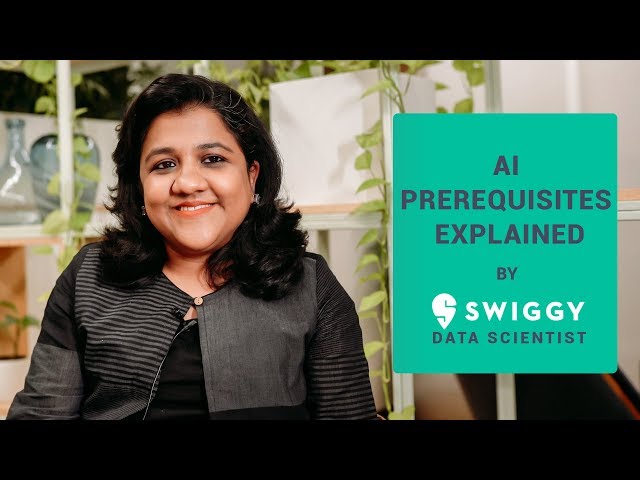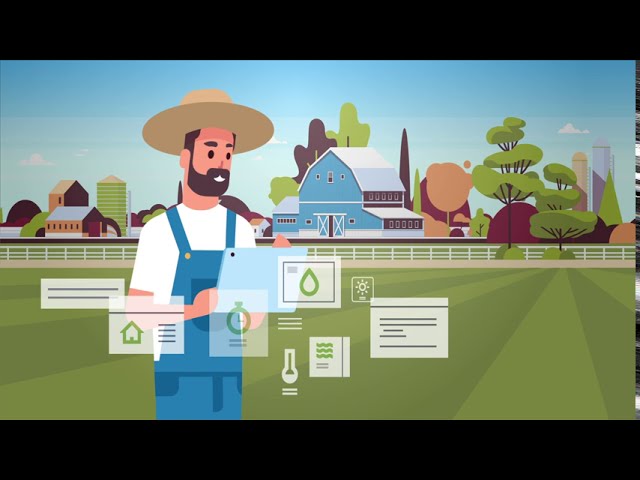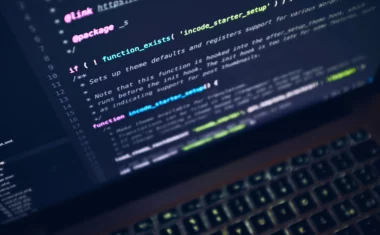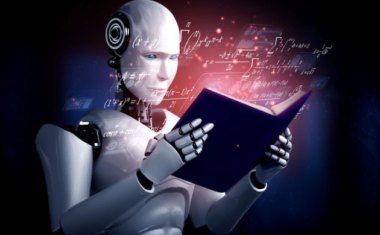How AI Is Being Used in 2023 (Examples From 14 Industries)
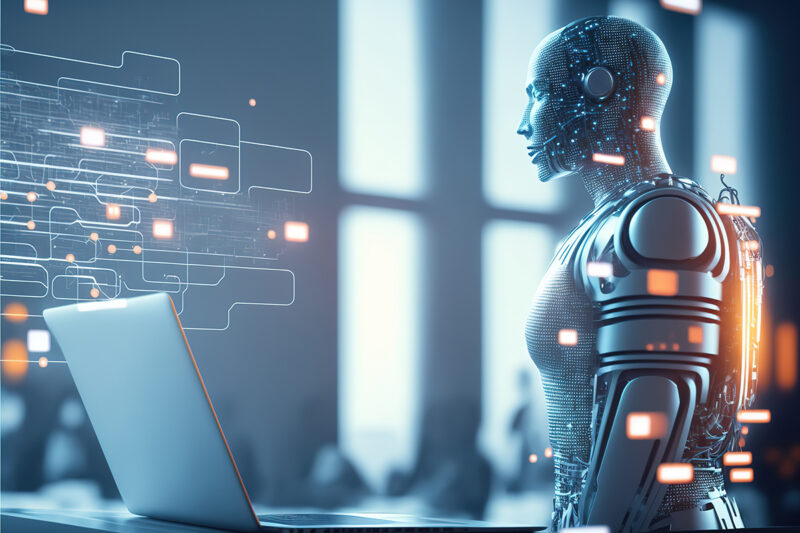
There are a lot of misconceptions about artificial intelligence. Though AI is nothing like what you’ll see in science fiction films—robots definitely aren’t trying to enslave the human species—the idea of AI being intertwined with our daily lives can still seem a bit scary.
To help better understand how AI is (and isn’t) becoming a part of our daily lives, we’ve put together this guide. Below, we’ll tell you all about how AI is used across different industries, and highlight 14 real-world examples that illustrate AI’s growing omnipresence.
How Widely Used Is AI?
The global artificial intelligence market will surpass $1.5 trillion by 2030. From architecture and agriculture to tourism and transportation, AI has transformed several industries. In finance, for example, Bank of America has been using AI to improve its customer interactions since 2016. This is fairly typical of how AI is used today—AI can’t think as creatively as a human can, but it’s very effective at completing repetitive tasks.
Real-World Applications of AI
Let’s look at 14 real-world applications of AI:
Business
Here are some of the ways in which businesses are using AI today:
Automation
AI can’t replace human ingenuity, but it can do what it’s told. Alibaba, the online retail giant, is a prominent example of a company that has automated various tasks. It uses AI algorithms to:
- Study customer data
- Generate personalized recommendations for online shoppers based on this data
- Reduce manual anti-fraud verification delays by automating fraud detection
Decision-Making
Humans who run a business make thousands of decisions daily, but not all these decisions require unique thinking each time. The insurance company Allstate is a great example of how businesses are using AI and pattern recognition to make decisions more quickly. Its Drivewise tool can calculate the risk of insuring a given customer by analyzing their habits and the customer segment they’re part of.
Customer Sentiment Analysis
Another way that businesses are using AI today is by using natural language processing tools to analyze their customer feedback. The consulting firm Deloitte used such tools to help grocery chains in South Africa understand their customers’ most significant pain points by combing through over 1.5 million social media comments and interactions. By doing this, they were able to group different types of complaints, then see which sentiments prevailed within any one group.
Resume Screening
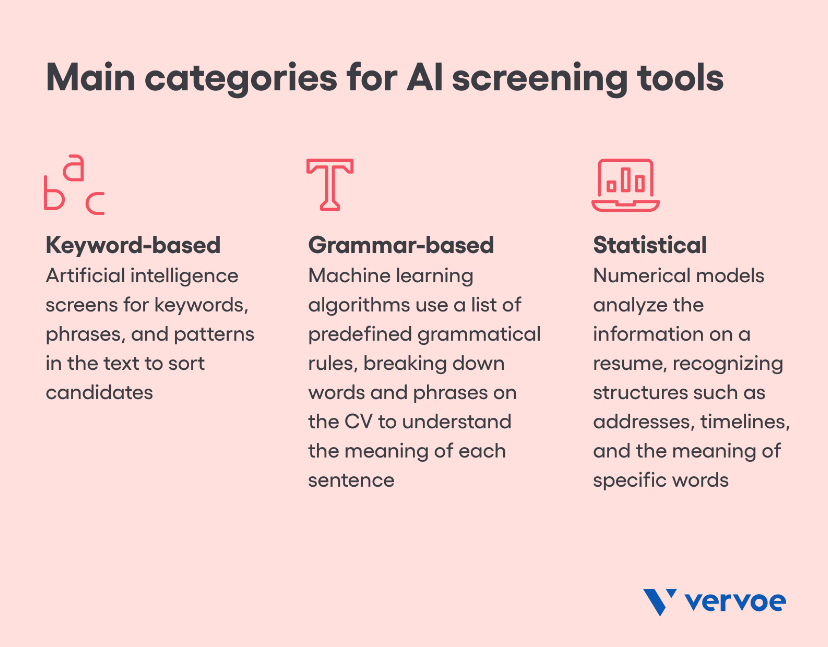
Artificial intelligence can help HR managers quickly comb through thousands of resumes by filtering out applicants who don’t have the right credentials listed on their resumes. Artificial intelligence can also help organize information about each candidate. Valiant Finance, an Australian fintech company, used this approach when it needed to quickly double its workforce.
Healthcare and Medicine
Hospitals use artificial intelligence in multiple ways to help doctors save lives. Some of these efforts include:
Disease Prediction and Detection
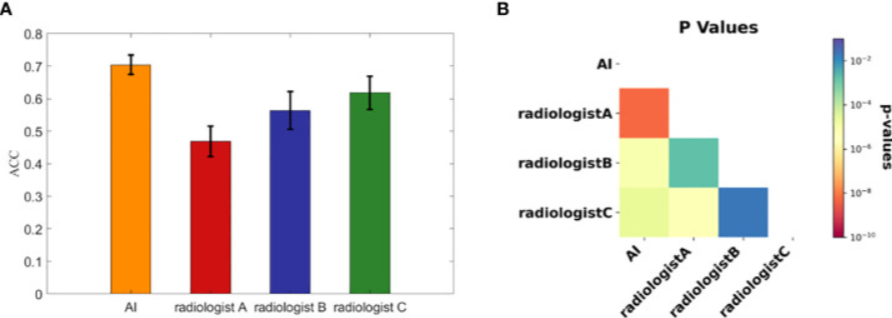
In an October 2022 medical study, a group of researchers evaluated the accuracy of an AI diagnosis system in detecting different kinds of thyroid lesions. They compared its performance to that of three radiologists. The AI system’s accuracy rate was higher than the best radiologist in the study, and could adequately assist them in differentiating between different thyroid lesions.
Medical Imaging
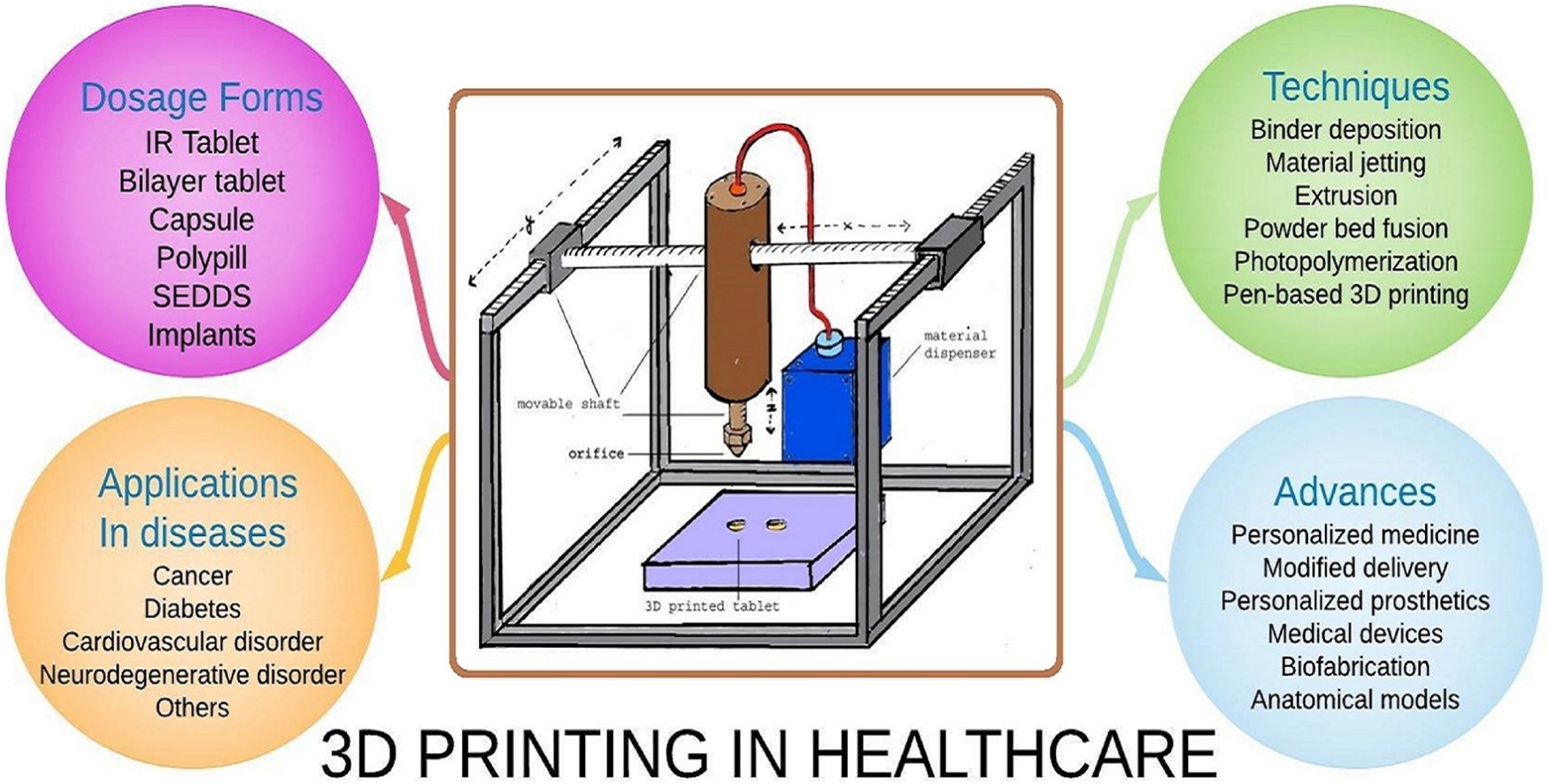
A well-trained artificial intelligence tool can detect complex patterns in imaging data. Royal Victoria Hospital in the UK has put this technology to use, with an AI-led 3D imagery and modeling tool that assists their surgical team. It identified bone fragments (which regular 2D imaging could not) in a patient who had suffered a motorcycle accident.
Streamlining Administrative Work
AI can also make medical administrative work more efficient. In 2018, Ochsner Health in New Orleans used AI scheduling for its anesthesiologists. It led to higher engagement levels among the anesthesiologists as they also got more monthly breaks for better work-life balance. During COVID, this AI tool helped efficiently allocate ICU shifts during higher patient influx.
Internet of Things (IoT)
Internet of things (IoT) is a fancy way of describing your network of smart devices and appliances. Let’s look at how IoT is employing AI today.
Voice Assistant Devices
You’re probably already familiar with Siri and other voice assistants. These assistants can’t answer complex questions, but they’re great at retrieving information quickly.
Home Security Systems
Everyone wants to feel safe in their home, but nobody wants a home security system that goes off every time they walk in the door. To strike the right balance, facial and speech recognition technologies can be used to recognize an actual intruder.
Facial Recognition
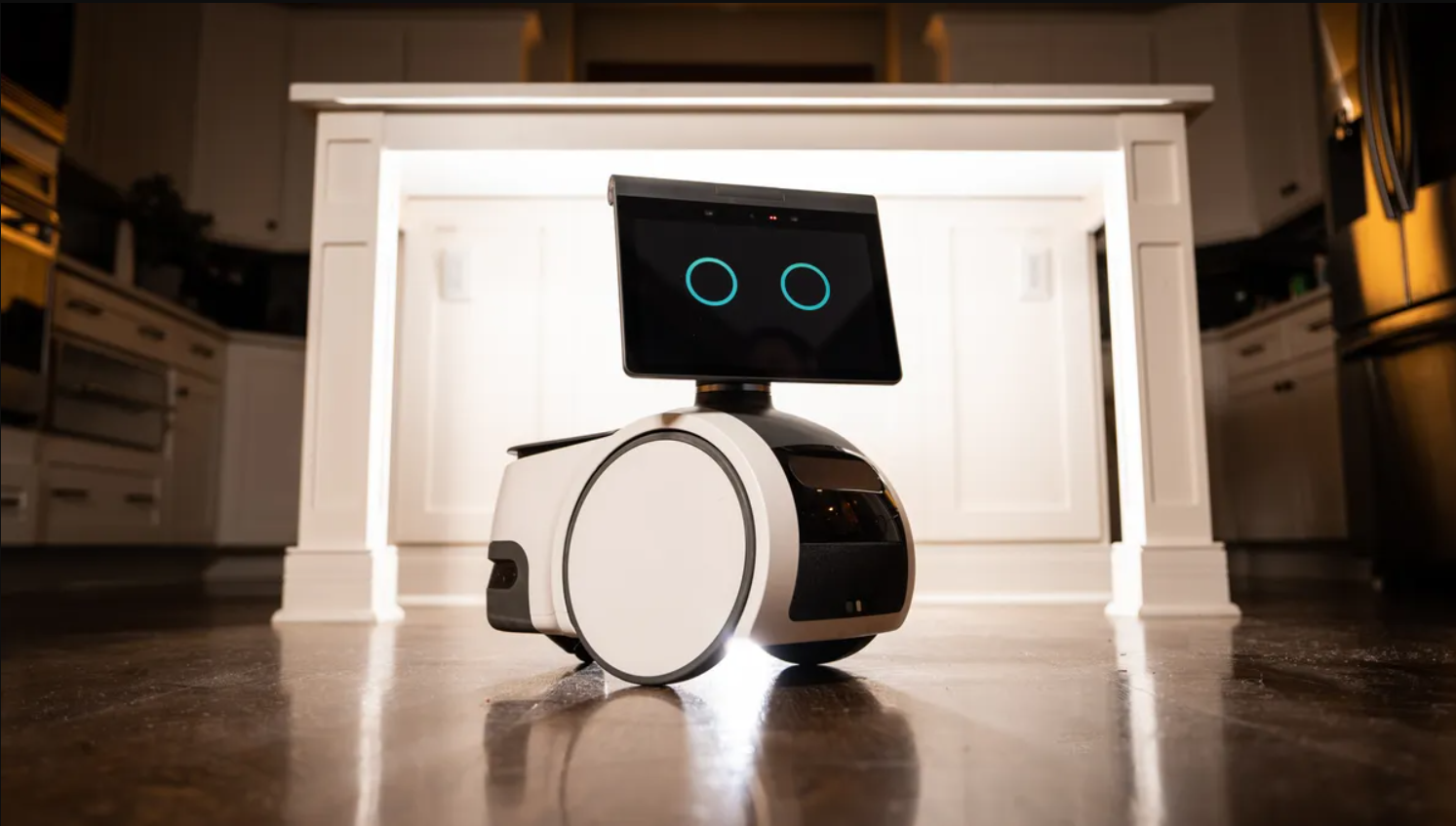
Amazon Astro, a moving robot security system, is a great example of this kind of facial recognition software in action, as it can distinguish between the faces of residents, routine visitors, and complete strangers. Using this data, it knows when to alert the owners of suspicious behavior.
Speech Recognition
Companies like Vector Security allow customers to connect their home security systems to virtual assistants. Customers can verbally instruct the system to perform routine tasks like locking doors and recording who is outside the door. The AI recognizes simple voice commands through virtual assistants to make home security more accessible.
Tourism and Hospitality
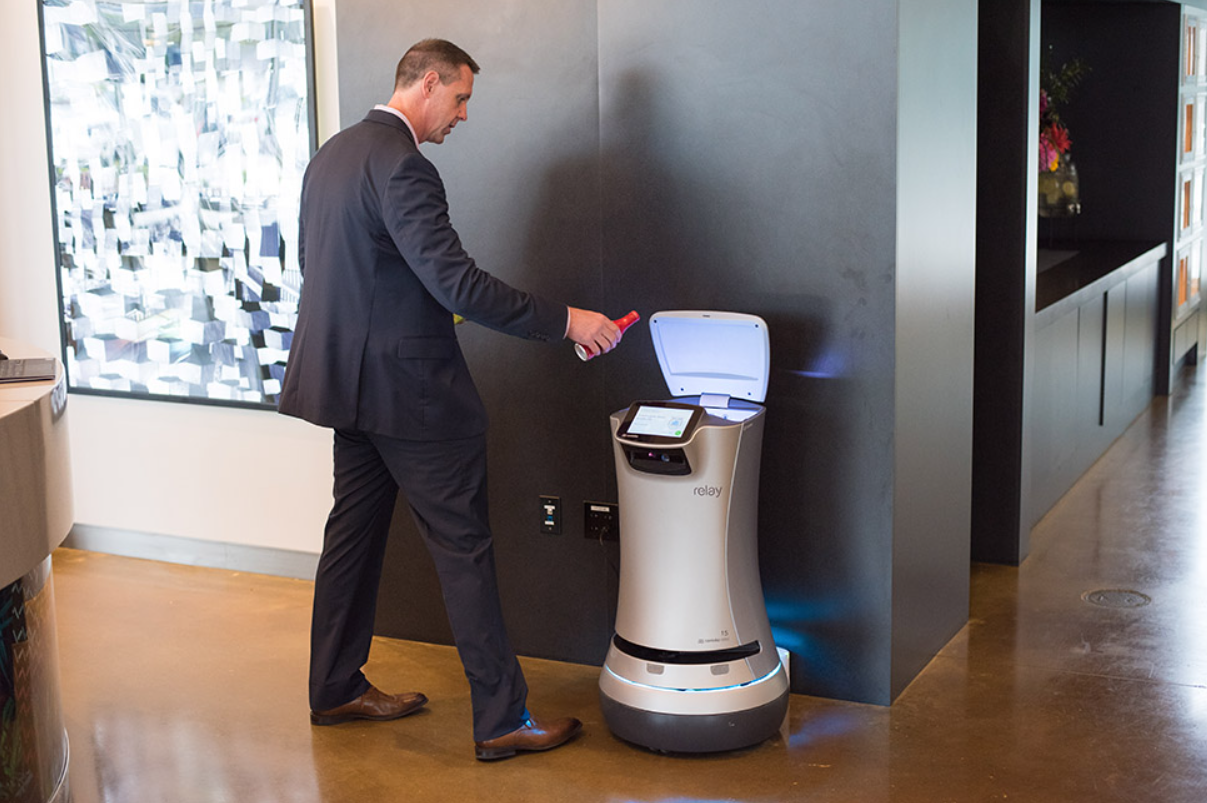
In tourism and hospitality, AI is being used to enhance customer experience, reduce administrative turnaround time, and increase revenue. For example, AI-powered robots like Botlr are being used to perform basic housekeeping tasks at Aloft hotels in California.
Architecture, Construction, and Real Estate
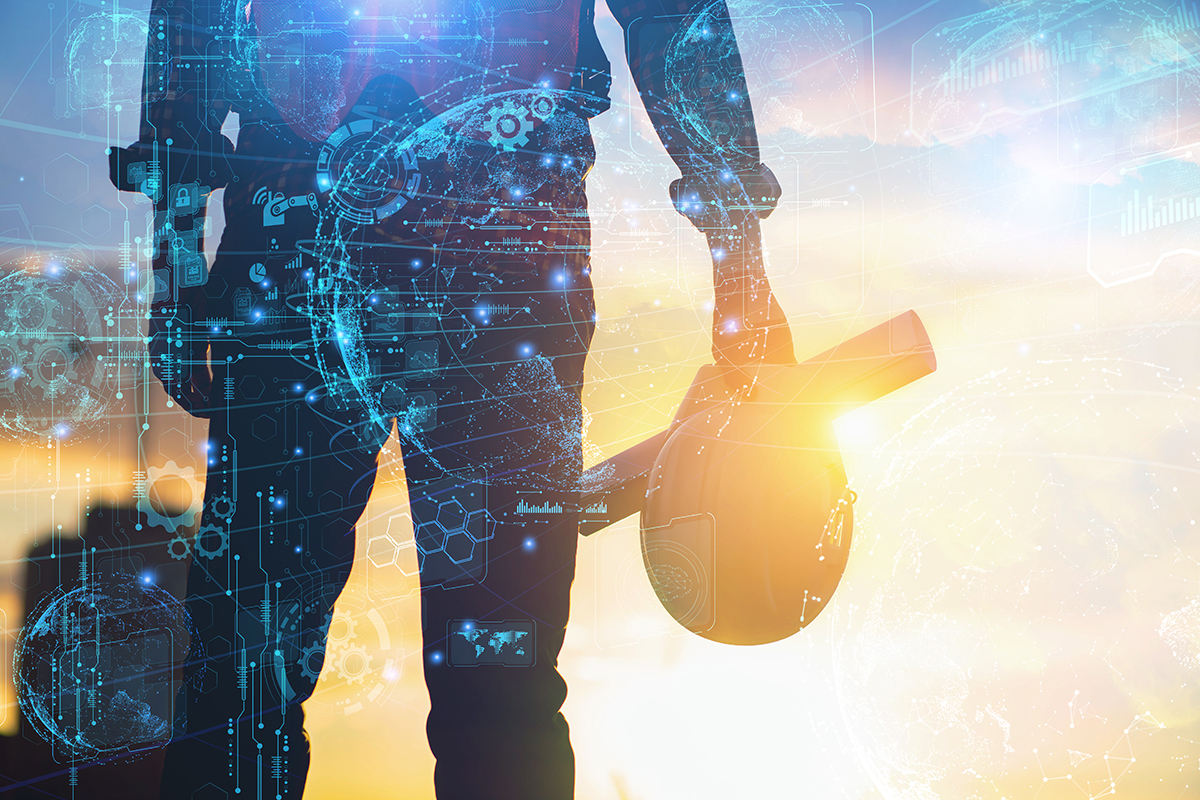
Now let’s look at industries requiring assistance with the design process, pricing, and productivity.
Generative Design
Project Dreamcatcher is a generative design system that solves design problems. The tool enables designers to meet their goals despite design constraints. Airbus has used it to generate designs that fulfill requirements related to passenger comfort, weight, etc., for airplane interiors.
Productivity Optimization
Katerra, a US-based construction and design firm, created Apollo, an AI-powered tool, to optimize productivity. Apollo analyzes construction data to make recommendations related to labor efficiency, material usage, and costs.
Price Forecasting
The real estate website Zillow uses AI for its in-house “Zestimate” tool, which analyzes real estate data to provide property valuations based on parameters like:
- Property size
- Location
- Number of rooms
- Past transactions related to the property
Marketing and Social Media
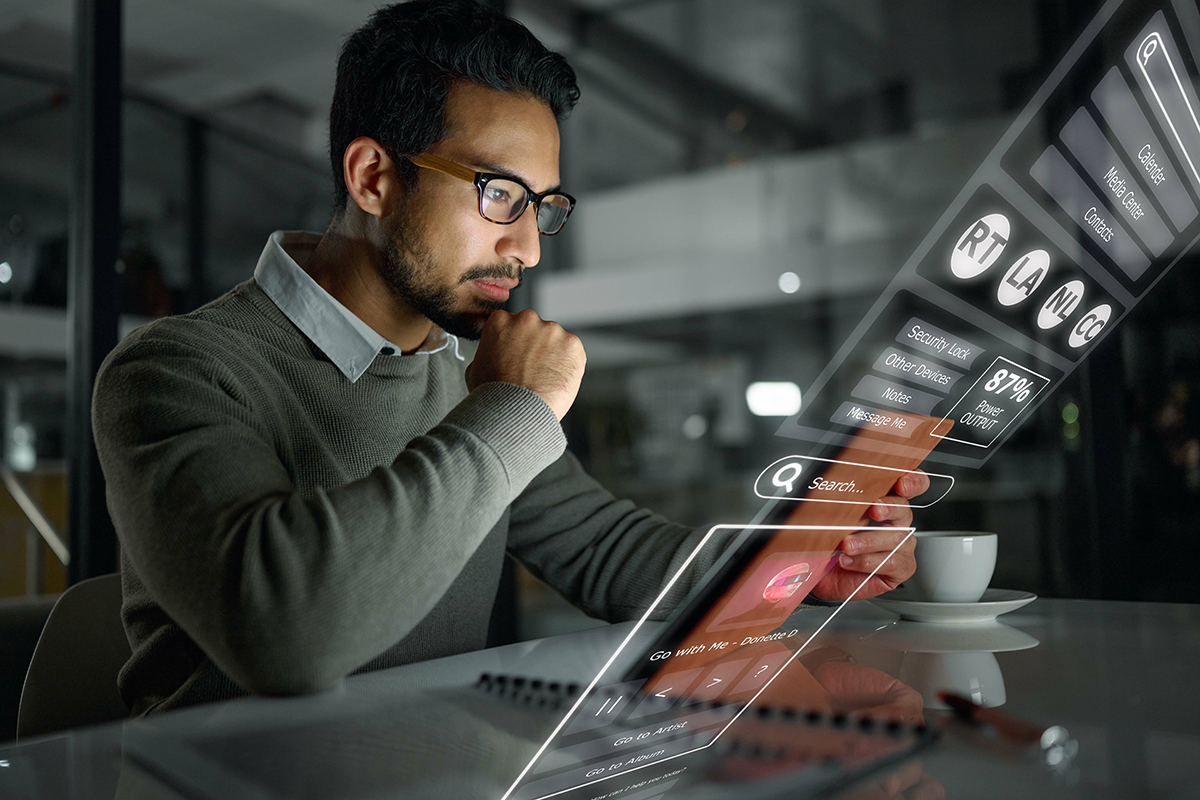
For both social media users and social media companies, AI is transforming the landscape:
AI Writing Tools
Many marketers are now experimenting with ChatGPT and other AI writing tools. Most consider it to be a good supplementary tool to help with content for marketing campaigns.
But the evolution of AI writing tools is not recent. Toutiao, a news syndication service, used an AI writing tool to cover the Rio Olympics on its site. It published over 400 articles throughout the event. The tool did so by going through the Olympics database and real-time results to generate short news pieces.
Targeted Advertising
AI is largely responsible for targeted advertising, as it combs through customer preferences and behavior to deliver tailored ads.
A/B Testing
A/B testing is necessary for businesses looking to track user engagement. One example of this is the Discovery channel, which used an A/B testing AI tool to increase engagement on its streaming platform. The tool ran experiments to track visitors and measured their customer experience, leading to increased video engagement.
Chatbots
Traditionally, chatbots use AI to answer standard customer queries such as order status, ticket generation, questions related to delivery, etc. But they can also do more. The cosmetics company Olay has a chatbot called Skin Advisor, which gives personalized skincare recommendations based on keywords the user inputs. Examples include “oily skin,” “serum,” “acne,” etc. The chatbot has helped customers form a doable skincare routine using the right products.
Social Media Feeds
Hong Kong Airlines is a great example of a company that uses social media feeds for lead generation, brand advocacy, and social selling. They do this with AI tools that sift through the social media behavior of their users to pinpoint what kind of content they are looking for.
Get To Know Other Data Science Students
Ginny Zhu
Data Science Intern at Novartis
Hastings Reeves
Business Intelligence Analyst at Velocity Global
Lou Zhang
Data Scientist at MachineMetrics
Energy
Machine learning tools can optimize the performance of solar panels and wind turbines by collecting data related to operating conditions. The company can then use this data to create strategies for more efficient maintenance. GE Renewable Energy, for example, uses an AI tool called Digital Wind Farm to ensure the efficiency and reliability of its turbines. The tool collects data to streamline predictive maintenance efforts.
Finance, Banking, and Insurance
Insurance and finance are both data-driven sectors, making them both ripe for AI innovations. Here’s what that looks like in practice:
Risk Assessment
Risk analysis is time-consuming because of how many different data points have to be considered. To circumvent this, Citi Group uses AI to assist with its risk identification process. The tool collects data, then scores the risk level associated with a particular user. Insurance companies use similar scoring tools to gauge the risk of providing insurance coverage to a specific individual.
Algorithmic Trading
With algorithmic trading, investors can buy or sell passively after setting a buying or selling point. Then, the stock is purchased when the criteria are met.
Agriculture
Here’s how artificial intelligence has helped bring agriculture into the 21st century:
Pest and Crop Disease Detection
Syngenta, an agri-chemical business that aims to improve global food security, uses AI to detect crop diseases. It does this by tracking pests in real-time. Their AI tool, AgriEdge Excelsior, uses sensors to collect and synthesize crop health data that can be used to make decisions.
Intelligent Irrigation Systems
Scott Miracle-Gro, a US-based garden machinery company, uses an AI tool called Hydrawise. As the name suggests, this tool helps optimize irrigation equipment for efficient crop irrigation. It uses sensors to create irrigation schedules by analyzing parameters like plant health, weather data, and soil composition.
Telecommunications

AI has rescued the telecom industry in numerous ways. Vodafone, for example, uses an AI tool to provide real-time assistance to customers using contact center technology. This has reduced their tech dispatch rate and improved customer satisfaction and first contact resolution rate.
Transportation
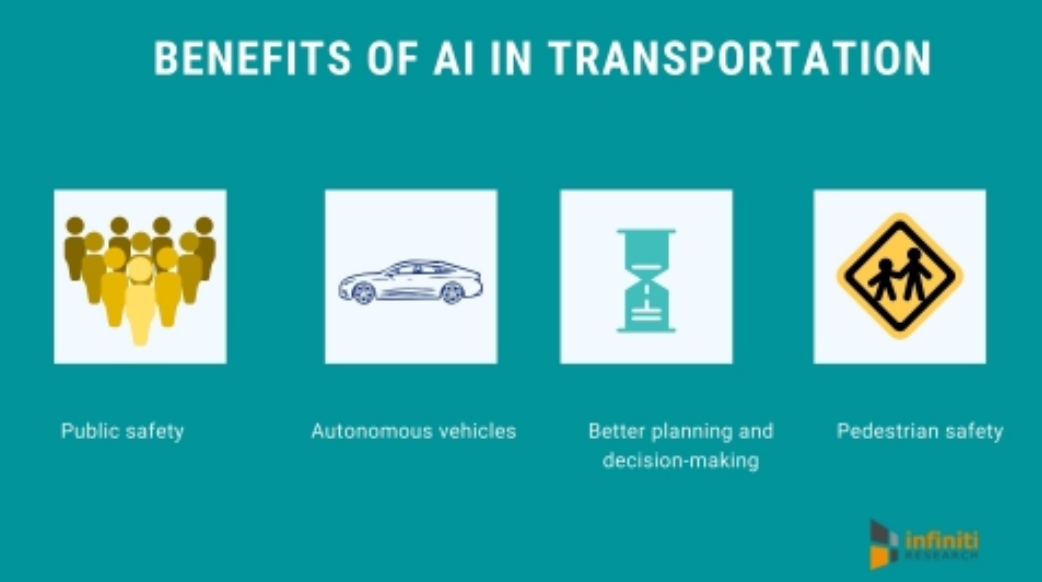
Here’s how AI has helped with safer roads and traffic management:
Self-Driving Cars
BMW has rolled out an electric sports vehicle that uses AI in different ways to support its self-driving features, including ultrasonic and radar sensors that promote self-steering, accelerating, braking, and sticking to lanes.
Google Maps
Google Maps uses deep learning algorithms to identify changes in roads by studying building edges and shapes. This happens based on outlines created by the operations team. They feed these images into the tool so that it “learns” how to identify building shapes.
Traffic Management
Google Maps also helps with traffic management by monitoring traffic conditions, predicting traffic patterns, and analyzing historical traffic data. The algorithms then suggest the best routes for users to take.
Media, Entertainment, Leisure, and Recreation
Here’s how AI is being used in media and entertainment today:
Personalized Recommendations
Netflix, Hulu, and other streaming providers track your viewing habits and searches to better suggest recommendations. Netflix takes this a step further by using AI to comb through all the frames of a movie or show to identify which frame is most likely to attract users. Netflix then uses that frame as the thumbnail.
Gaming
A recent example of AI in the gaming industry is the new video game God of War: Ragnarok. The game is designed with algorithms that dictate the gameplay based on user choices so that each player receives a unique experience.
Manufacturing
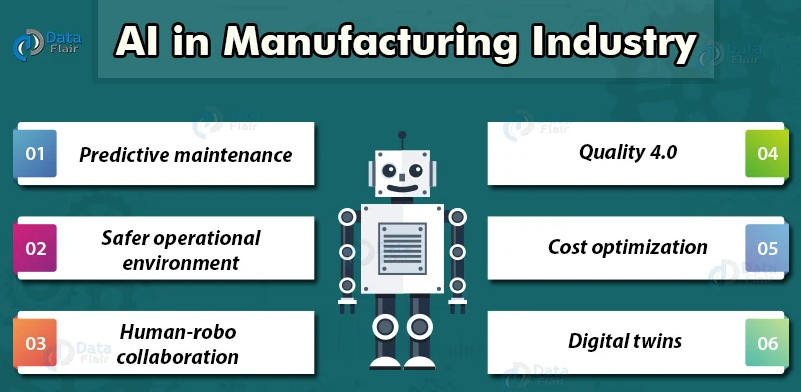
Here’s how the manufacturing sector uses AI today:
Supply Chain Optimization
AI tools can collect data on transport routes, available fleets, and pending orders, offering insights that help reduce traffic costs. DHL, for example, is a logistics provider that uses an AI platform called “Optimizer” to support warehouse management systems, organize transportation routes, and schedule delivery trucks.
Robotics
General Motors uses assembly line robots equipped with cameras, which can identify early signs of failure among components. This generates high-resolution images that can help spot problems and predicts outages.
Cybersecurity

AI has various uses in the cybersecurity industry, including breach risk prediction, endpoint protection, and threat detection and mitigation. Just in the same way that AI can be used to detect unusual behavior in your home, AI can also be used to detect unusual behavior in the cybersecurity realm too.
AI Applications FAQs
We’ve got the answers to your most frequently asked questions:
Which Industry Uses AI the Most?
According to AI researcher Bergur Thormundsson, the tech and telecommunications industries use AI most frequently. But other industries are quickly catching up.
What Are Some Unique Applications of AI?
Here’s one you probably didn’t expect: brushing your teeth! Oral-B has launched a “smart” toothbrush that studies and remembers the user’s brushing behavior and tweaks its settings according to brushing habits.
What Are Some Potential Applications for AI?
Nuclear waste disposal, space exploration, environmental monitoring, and natural disaster predictions are all on the AI horizon!
Since you’re here…
Thinking about a career in data science? Enroll in our Data Science Bootcamp, and we’ll get you hired in 6 months. If you’re just getting started, take a peek at our foundational Data Science Course, and don’t forget to peep our student reviews. The data’s on our side.
